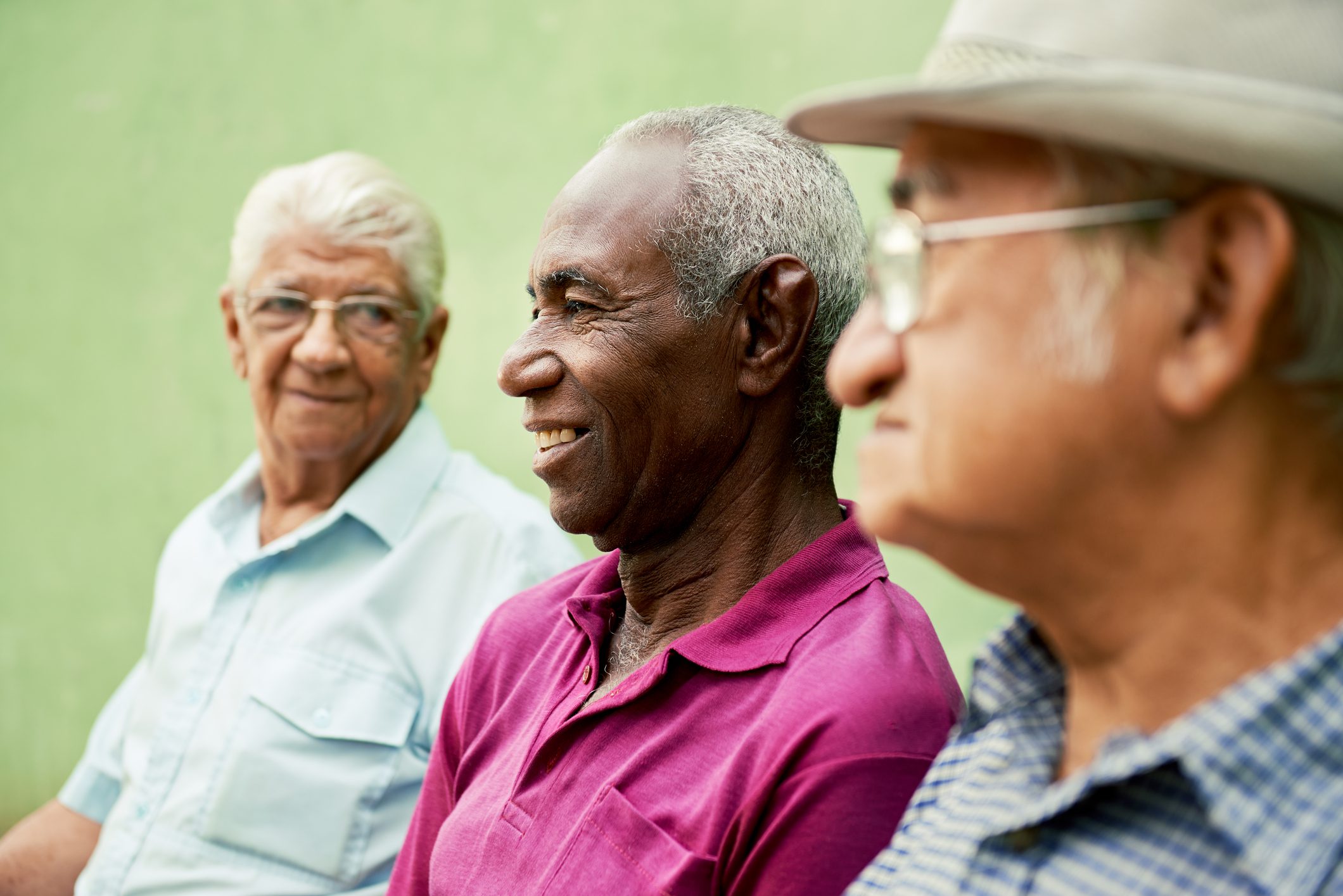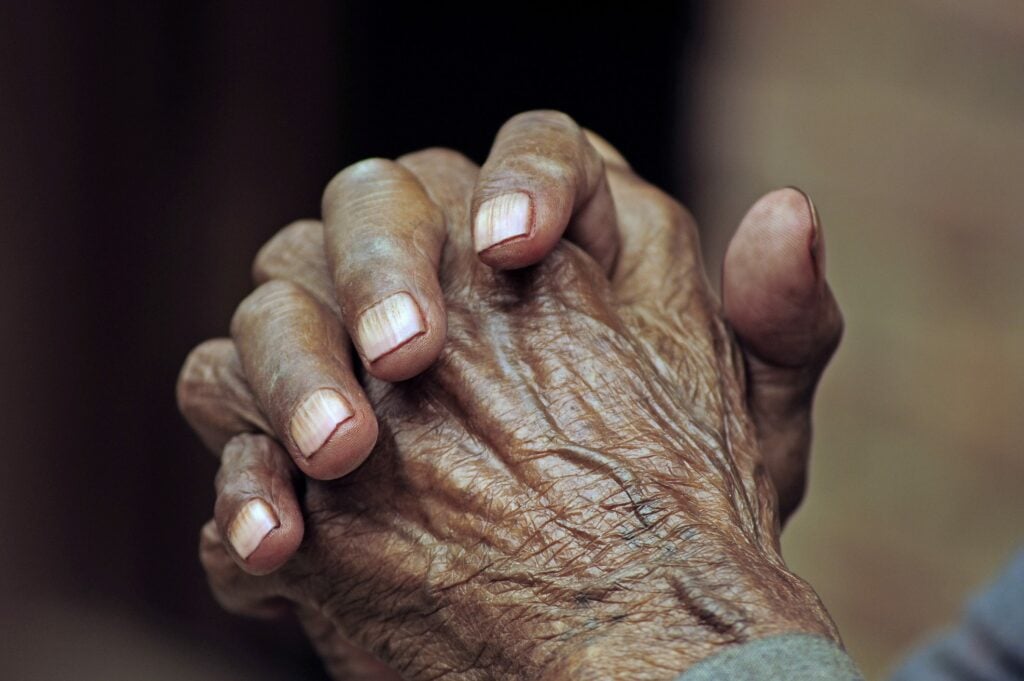Baby Boomers and mental health
Reviewed by Robert Bogenberger, PhD

Who are Baby Boomers?
Baby Boomers (or “Boomers”) are the generation of people born between 1946 and 1964. They fall between the Silent Generation and Generation X (or “Gen X”). Their name refers to the baby boom that followed World War II. During this time, the birth rate increased as more babies were born in the United States and other countries.


Most experts divide Baby Boomers into two subgroups:
- Older or “leading-edge” Baby Boomers born between 1946 and 1955.
- Younger or “trailing-edge” Baby Boomers born between 1956 and 1964.
Older Baby Boomers may find common ground with younger members of the Silent Generation.
People often group younger Baby Boomers and older Generation Xers into a smaller group called Generation Jones. The name likely comes from the old saying “keeping up with the Joneses,” which means trying to match the success and status of peers.
Are generations real?
Generations are socially constructed categories, meaning their details (birthdate range, names, and formative events) are decided over time by experts and the public. Generations can be helpful ways of understanding others, but they have limits. Like all socially constructed categories, they’re most useful in the context of other shared social experiences, such as:
- Family of origin
- Age and stage of life
- Race and ethnicity
- Gender and sexuality
- Ability and disability
- Income and socioeconomic class
- Occupation and workplace
- Experience of pregnancy and/or parenthood
- Relationship status
- Religion or faith community
- Immigration experience and/or status
- Physical and mental health history
Baby Boomers growing up
Silent Generation parents raised Baby Boomers, often with strict rules, high expectations, and less warmth and affection. We now know this strict, authoritarian parenting style is linked to children developing anxiety, low self-esteem, and social difficulties later in life.1
Many Boomers grew up in a time of economic prosperity and social change, with the rise of consumerism and the influence of television. They experienced significant cultural events like the Cold War, the Civil Rights Movement, and the rise of rock and roll. These experiences shaped their values, attitudes, and perspectives on life, work, and family.
As they entered adulthood, Baby Boomers often prioritized career success and material wealth.2 They were known for their strong work ethic and competitive drive. However, this focus on achievement also led to high levels of stress and burnout for some.3
As Baby Boomers became parents themselves, many wanted to be more involved in their children’s lives. This led to the rise of “helicopter parenting,” where parents closely monitor and control their children’s activities and experiences.4
Baby Boomers today
Baby Boomers have had diverse experiences that shaped them as individuals and as a generation.
- They make up a large portion of the population. Baby Boomers were the largest generation in the US until Millennials surpassed them in number. Data from the 2020 Census shows that there are approximately 73 million Baby Boomers in the US.5 US Census Bureau data from 2019 shows Baby Boomers make up approximately 22% of the population.6
- They’re less diverse than the overall population. According to the 2015 census, 75% of Baby Boomers are White.7
- They hold more traditional gender identities. Baby Boomers have seen the transformation from the Silent Generation’s traditional values to the more progressive attitudes of Generation X, Millennials, and Gen Z. A recent poll shows that LGBTQIA+ identification goes up with each younger generation.8 Of the Baby Boomer generation, only 2.6% identified as LGBTQIA+ (compared to 20.8% of Gen Z).
- Their views on sexuality are still evolving. A 2018 Pew Research Center survey found that only 27% of Boomers believe same-sex marriage benefits society.9 On the other hand, 32% think it’s detrimental and 40% believe it has no impact. Only 12% personally know someone who uses gender-neutral pronouns.
- Less than a quarter of them pursued higher education. Only 22% of Boomer men and 20% of Boomer women completed at least four years of college education.10 Baby Boomers are the last generation in which more men than women earned college degrees.
- They hold a lot of wealth. They played a significant role in shaping the modern American economy and suburban expansion. Baby Boomers have controlled more than 50% of household wealth in the US since 2008, according to Federal Reserve data.11
- They’re facing age-related challenges. All Baby Boomers will be aged 65 or older by 2030.12 With increasing life expectancy, Baby Boomers are now facing new challenges related to health, retirement, and caregiving.
Baby Boomers and mental health issues
Baby Boomers grew up during a time when people didn’t discuss mental health issues as openly as they do today. Derogatory labels and stigma were common. Because of this, some Boomers may not know how to discuss mental illness in a healthy way and may need extra support from a therapist.
Baby Boomers and mental health stigma
When Baby Boomers were young, society often placed people with severe mental illnesses in mental hospitals or asylums. And while some provided adequate healthcare, others offered little more than abuse and neglect. Over the last half of the 20th century, society moved away from these institutions.13 Throughout the US, many closed and discharged thousands of people.
Although the era of institutionalization ended, stigma around mental health care remained. Many Baby Boomers grew up with the idea that mental illness was shameful. Older generations often avoided talking about family members who were put in institutions or even tried to hide it completely.
Baby Boomers and PTSD
Posttraumatic stress disorder (PTSD) is a mental health disorder that can develop after a person witnesses or experiences trauma. A troubling event can cause anyone to get PTSD, but people often link it to military service.
Approximately 10 million Baby Boomers served in the military, including about 40% of the men of that generation.14 PTSD wasn’t an official diagnosis until Boomers were already in their mid-teens, twenties, or early thirties. Boomers who have experienced trauma may still struggle with its mental health impact, even if they openly discuss it.
Baby Boomers and disabilities
In addition to stigma around mental illness, many Baby Boomers grew up with stigma around disabilities. People with mental, behavioral, or intellectual disabilities often went undiagnosed or untreated. Boomers with autism spectrum disorder (ASD), attention-deficit/hyperactivity disorder (ADHD), dyslexia, and other conditions were likely to face discrimination, bullying, and even abuse, especially as kids.
In the US, the movement for disability rights began to gain momentum in the ’70s and ’80s.15 This history likely affects the way many Boomers think about disabilities today. Lingering stigma and fear can also hinder open discussion and adaptation to age-related conditions such as dementia.
Baby Boomers and depression
The risk for depression increases with age. Many Boomers have reached retirement or are preparing for it. This is a major life change that can trigger depression as well as other mental health struggles.16
Grief can also trigger depression. Many Boomers are seeing parents, spouses, siblings, friends, and other loved ones pass away.
During the COVID-19 pandemic, older Boomers have been at greater risk of infection, hospitalization, and death. Many people have isolated themselves from loved ones, grandchildren, family, and friends. These experiences can contribute to increased risk for depression.
How Baby Boomers can protect their mental health
Baby Boomers can take several steps to protect their mental health as they age.
- Staying socially connected, even virtually, can help combat isolation and loneliness.
- Regular exercise, a healthy diet, and getting enough sleep are also important for maintaining mental wellbeing.
- Engaging in hobbies, volunteering, or learning new skills can provide a sense of purpose and fulfillment.
- Exploring mindfulness practices like meditation or yoga can promote relaxation, reduce stress, and improve overall mental wellbeing.
- Staying mentally active through activities like reading, puzzles, or learning a new language may prevent age-related mental decline.
- Talking openly with family and friends about mental health struggles can help reduce stigma and provide support.
- Seeking professional help from a therapist or counselor can help with managing depression, anxiety, or other mental health concerns.
If you or a loved one are struggling, help is available. You can call the free, confidential 988 Suicide & Crisis Lifeline at 988 or text HOME to 741741 to chat with a crisis counselor.
If you’re not in a crisis, but think you could benefit from speaking with a mental health professional, browse our directory to find a licensed provider in your area.

Sources
1 https://www.ncbi.nlm.nih.gov/pmc/articles/PMC10561979/
2 https://imagine.jhu.edu/blog/2022/11/17/the-changing-generational-values/
3 https://pubmed.ncbi.nlm.nih.gov/26260588/
4 https://www.ncbi.nlm.nih.gov/pmc/articles/PMC9638553/
5 https://www.census.gov/library/stories/2019/12/by-2030-all-baby-boomers-will-be-age-65-or-older.html
6 https://www.brookings.edu/blog/the-avenue/2020/07/30/now-more-than-half-of-americans-are-millennials-or-younger/
7 https://www.brookings.edu/blog/the-avenue/2016/06/28/diversity-defines-the-millennial-generation/
8 https://news.gallup.com/poll/389792/lgbt-identification-ticks-up.aspx
9 https://www.pewresearch.org/social-trends/2020/05/14/on-the-cusp-of-adulthood-and-facing-an-uncertain-future-what-we-know-about-gen-z-so-far-2/
10 https://www.pewresearch.org/fact-tank/2018/03/16/how-millennials-compare-with-their-grandparents/#!12
11 https://www.federalreserve.gov/releases/z1/dataviz/dfa/distribute/table/#quarter:119;series:Net%20worth;demographic:generation;population:all;units:shares/
12 https://www.census.gov/library/stories/2019/12/by-2030-all-baby-boomers-will-be-age-65-or-older.html
13 https://www.theatlantic.com/health/archive/2021/05/truth-about-deinstitutionalization/618986/
14 https://www.nytimes.com/2017/04/11/opinion/the-baby-boomer-war.html
15 https://www.nytimes.com/2020/07/22/us/ada-disabilities-act-history.html
16 https://www.sciencedirect.com/science/article/abs/pii/S0165178118301203/
About the author
The editorial team at therapist.com works with the world’s leading clinical experts to bring you accessible, insightful information about mental health topics and trends.
Related articles

Generation Alpha and mental health
Generation Alpha’s mental health is still taking shape. Destigmatizing mental...

Born in the 1980s through the mid-1990s, Millennials often struggle with...

The Silent Generation and mental health
Born between 1928 and 1945, the Silent Generation learned to prioritize...

Born in the mid-1960s to late 1980s, Gen X has historically taken a pragmatic...
